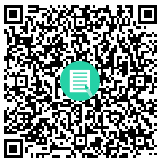
Several weeks ago, a mysterious Christmas card dropped through our mailbox. The envelope was addressed to a man named Raoul, who, I was relatively certain, did not live with us. The envelope wasn't sealed, so I opened it. The inside of the card was blank. Ed, my husband, explained that the card was both from and to the newspaper deliveryman. His name was apparently Raoul, and Raoul wanted a holiday tip. We were meant to put a check inside the card and then drop the envelope in the mail. When your services are finished at 4 a.m., you can't simply hang around, like a hotel bellboy expecting a tip. You have to be direct.
So I wrote a nice holiday greeting to this man who, in my imagination, fires The New York Times from his bike aimed at our front door, causing more noise with mere newsprint than most people manage with sophisticated(复杂的) black market fireworks. With a start, I realized that perhaps the reason for the 4 a.m. wake-up noise was not ordinary rudeness but carefully executed spite(怨恨): I had not tipped Raoul in Christmas past. I honestly hadn't realized I was supposed to. This was the first time he'd used the card tactic(策略). So I got out my checkbook. Somewhere along the line, holiday tipping went from an optional thank-you for a year of services to a Mafia-style protection racket (收保护费组织).
Several days later, I was bringing our garbage bins back when I noticed an envelope taped to one of the lids. The outside of the envelope said MICKEY. It had to be another tip request, this time from our garbage collector. Unlike Raoul, Mickey hadn't enclosed his own Christmas card from me. In a way, I appreciated the directness. "I know you don't care how merry my Christmas is, and that's fine," the gesture said. "I want $30, or I'll 'forget' to empty your garbage bin some hot summer day." I put a check in the envelope and taped it back to the bin. The next morning, Ed noticed that the envelope was gone, though the trash hadn't yet been picked up: "Someone stole Mickey's tip!" Ed was quite certain. He made me call the bank and cancel the check. But Ed had been wrong. Two weeks later, Mickey left a letter from the bank on our steps. The letter informed Mickey that the check, which he had tried to cash, had been cancelled.
The following Tuesday morning, when Ed saw a truck outside, he ran out with his wallet. "Are you Mickey?" The man looked at him with scorn(轻蔑). "Mickey is the garbageman. I am the recycling." Not only had Ed insulted(侮辱) this man by suggesting that he was a garbageman, but he had obviously neglected to tip him. Ed ran back inside for more funds. Then he noticed that the driver of the truck had been watching the whole incident. He peeled off another twenty and looked around, waving bills in the air. "Anyone else? "
Had we consulted the website of the Emily Post Institute, this embarrassing break of etiquette (礼节) could have been avoided. Under "trash/recycling collectors" in the institute's Holiday Tipping Guidelines, it says: "$10 to $30 each." You may or may not wish to know that your hairdresser, mailman and UPS guy all expect a holiday tip.
1. The newspaper deliveryman put a blank card inside the envelope because_____________________.
A. he wanted the couple to pay for the newspaper
B. he forgot to write a few words on it
C. he used it to ask for a Christmas tip
D. he was afraid of asking for a tip in person
2. From the passage, we learn that the author_________.
A. didn't like Raoul's way of delivering the paper
B. didn't realize why Raoul delivered the paper that way before
C. didn't know that Raoul delivered the paper for them
D. didn't feel it necessary to meet Raoul when he came
3. According to the passage, the author felt ______to give Raoul a holiday tip.
A. excited B. happy C. embarrassed D. forced
4. Which of the following is true about Mickey, the garbage collector?
A. He wrote a letter to the couple afterwards.
B. He failed to collect the money from the bank.
C. He wanted the couple to send him a Christmas card.
D. He collected both the check and the garbage that day.
5. Ed's encounter(遭遇) with the recycling team shows that________________________________.
A. Ed was desperate to correct his mistake
B. Ed only wanted to give money to Raoul
C. Ed was unwilling to tip the truck driver
D. Ed no longer wanted to give them money
6. From the passage we can infer that __________________________________________.
A. their garbage bin might not be emptied one day if the writer didn’t give tips
B. the writer could have avoided giving tips if they had consulted the website of the Emily Post Institute
C. the writer’s husband didn’t know Raoul at all
D. the writer’s family was too poor to give the tips
参考答案
1. C 根据第二段中的I had not tipped Raoul in Christmas past和This was the first time he'd used the card tactic可知Raoul是想要圣诞节小费。D中的“was afraid of…”文章中未提到。
2. B 根据第二段中的With a start, I realized that perhaps the reason for the 4 a.m. wake-up noise was not ordinary rudeness…可知作者以前并不知道Raoul这样扔报纸和发出噪音的原因。
3. D 根据第二段中的I honestly hadn't realized I was supposed to可知作者是被迫付费的。
4. B 根据第四段中的The letter informed Mickey that the check, which he had tried to cash, had been cancelled.可知他没拿到钱。
5. A 根据倒数第二段Ed拿着钱包去问司机可知他拼命想改正原先未付小费的错误。
6. A 根据I'll 'forget' to empty your garbage bin some hot summer day."可以推断出正确答案。
热点推荐:
公共英语等级考试PETS1-PETS5模拟试题汇总(680套)
取证热点: :2020年公共英语不用盲目备考,网校教研团队精心打造高通关套餐班,密训锁分,保障快捷通关!2020年公共英语锁分套餐班强势推出,精锐老师分题型专项辅导,听说读写稳步质变>>课程试听!
:2020年公共英语不用盲目备考,网校教研团队精心打造高通关套餐班,密训锁分,保障快捷通关!2020年公共英语锁分套餐班强势推出,精锐老师分题型专项辅导,听说读写稳步质变>>课程试听!
想获得更多公共英语考试复习资料?加入公共英语考试群461217684  有专业的老师为您解答问题,还可以和考友一起交流!
有专业的老师为您解答问题,还可以和考友一起交流!
赶紧扫描下面二维码!!!


